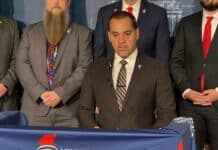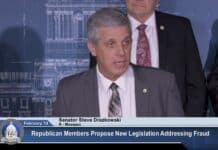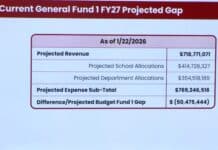
(Center of the American Experiment) — Gov. Tim Walz’s Professional Educator Licensing and Standards Board (PELSB) has published its Notice of Adoption for licensure rule changes that will require affected educators to demonstrate certain illiberal perspectives in order to be licensed to teach in Minnesota.
The most concerning changes are in the Standards of Effective Practice, which teacher candidates completing an initial teacher licensure program in Minnesota and teachers seeking an initial Tier 3 license via the portfolio process will have to meet. The new Standards of Effective Practice go into effect April 15, 2023. According to PELSB, teachers seeking an initial Tier 3 license via portfolio can continue using the old standards through July 1, 2025.
The changes drew overwhelming public opposition and even received national attention. According to PELSB, the overhaul of the teaching standards is necessary because “a teacher must have a foundational understanding of how race and racism are embedded in our institutions and everyday life.”
Examples of what affected educators will be required to demonstrate include:
- Standard 2, D. “The teacher fosters an environment that ensures student identities” including gender, gender identity, and sexual orientation are “affirmed and incorporated into a learning environment.”
- Standard 4, H. “The teacher demonstrates the ability to create opportunities for students to learn about power, privilege, intersectionality, and systemic oppression in the context of various communities and empowers learners to be agents of social change to promote equity.”
- Standard 6, C. “The teacher understands the historical foundations of education in Minnesota, including laws, policies, and practices, that have and continue to create inequitable opportunities, experiences, and outcomes for learners … ”
- Standard 6, F. “The teacher assesses how their biases, perceptions, and academic training may affect their teaching practice and perpetuate oppressive systems and utilizes tools to mitigate their own behavior to disrupt oppressive systems.”
- Standard 8, C. “The teacher understands how ethnocentrism, eurocentrism, deficit-based teaching, and white supremacy undermine pedagogical equity.”
- Standard 8, D. “The teacher understands that knowledge creation, ways of knowing, and teaching are social and cultural practices shaped by race and ethnicity, often resulting in racially disparate advantages and disadvantages.”
As the Foundation Against Intolerance and Racism (FAIR) Twin Cities aptly puts it, there are two overarching features of these changes that make them so concerning:
- ”the rejection of a common culture — a shared academic culture of excellence and achievement — through its proposed adoption of culturally relevant pedagogy (CRP); and
- the rejection of fairness, understanding and humanity by proposing to treat students as flattened group identities and group cultures rather than unique, individual learners.”
To find out more about those directly impacted by these politicized training requirements, check out this helpful explainer.
Catrin Wigfall
Catrin Wigfall is a Policy Fellow at Center of the American Experiment.
Catrin’s experience in education and policy research began during her time with the Young Leaders Program at The Heritage Foundation. Her interest in education policy led her to spend two years teaching 5th grade general education and 6th grade Latin in Arizona as a Teach for America corps member. She then used her classroom experience to transition back into education policy work at the California Policy Center before joining American Experiment in February 2017.
Catrin graduated summa cum laude from Azusa Pacific University in California, where she earned a Bachelor of Arts degree in Political Science.










